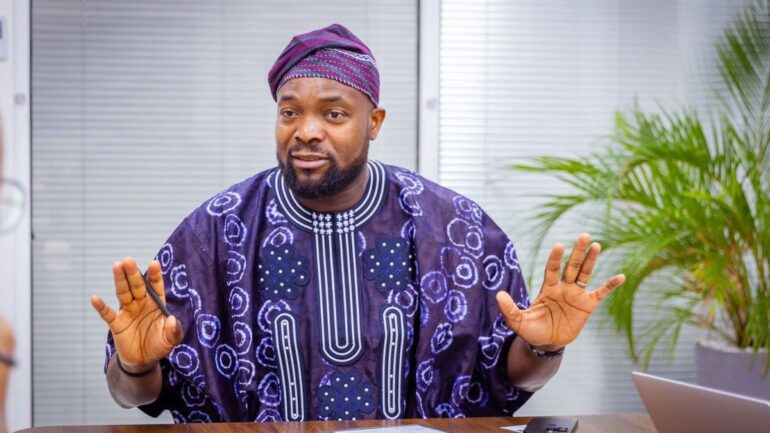- Nigeria unveils its first Multilingual Large Language Model (LLM), a significant step in AI leadership.
- Spearheaded by the Ministry of Communications, Innovation, and Digital Economy, the project promises to boost AI capabilities.
- Dr. Bosun Tijani, Nigeria’s Minister of Communications, emphasizes the importance of the milestone.
- The LLM is trained on five low-resource languages and accented English, enhancing linguistic representation.
- Potential applications span education, agriculture, healthcare, and customer service, promising transformative impacts.
- Collaboration involves governmental, academic, and private entities, highlighting the importance of partnerships in innovation.
- Nigeria’s LLM sets an example for African nations and holds promise for diverse sectors.
Main AI News:
In a move signaling Nigeria’s ambition to take the lead in the realm of Artificial Intelligence (AI), the country has launched its pioneering Multilingual Large Language Model (LLM). Championed by the Ministry of Communications, Innovation, and Digital Economy, this groundbreaking initiative is poised to amplify AI capabilities, propelling the nation towards technological excellence.
The announcement, made on April 19, 2024, by Dr. Bosun Tijani, Nigeria’s Minister of Communications, Innovation, and Digital Economy, underscores the significance of this milestone. “The introduction of the LLM marks a pivotal juncture in our national AI strategy,” emphasized Dr. Tijani. “This collaborative endeavor, engaging both local and international partners, propels Nigeria to the forefront of AI innovation in Africa.”
Understanding the Essence of LLM Technology
LLMs represent sophisticated AI systems trained on extensive datasets comprising text and code. These models exhibit the capacity to generate human-like text, facilitate language translation, craft diverse creative content, and provide informative responses to queries. Nigeria’s LLM, in particular, is tailored to be multilingual, enabling it to comprehend and process information across multiple languages spoken within the country.
Addressing Linguistic Diversity
Dr. Tijani accentuated a pivotal advantage of this multilingual LLM: “Our LLM will undergo training encompassing five low-resource languages and accented English, ensuring enhanced linguistic representation within existing datasets for AI solution development.” This strategic emphasis on underrepresented languages holds paramount importance for Nigeria, a nation characterized by linguistic diversity, boasting over 500 distinct languages. By integrating these languages into the training regimen, the LLM achieves greater inclusivity, thereby catering to a broader spectrum of users.
Exploring Potential Applications
The potential applications of Nigeria’s LLM are expansive and poised to revolutionize various sectors. Here are some pivotal domains where this technology stands to make a transformative impact:
- Education: Leveraging the LLM to devise personalized learning aids tailored to individual student requirements and language preferences, thereby promoting inclusivity and accessibility in educational endeavors.
- Agriculture: Integration of the LLM into agricultural frameworks to furnish farmers with localized insights concerning weather patterns, crop ailments, and optimal cultivation methodologies, thereby fostering comprehension and enhancing agricultural productivity.
- Healthcare: Utilization of the LLM in crafting chatbots and virtual assistants proficient in addressing patient inquiries regarding health-related matters in their preferred languages, bridging the gap between healthcare providers and patients, particularly in underserved rural areas.
- Customer Service: Harnessing the capabilities of the LLM to develop multilingual chatbots adept at engaging customers across diverse regions, thereby augmenting customer service experiences and streamlining communication channels.
Fostering Collaboration and Charting Future Trajectories
The development of Nigeria’s LLM stands as a testament to collaborative synergy, involving stakeholders such as the Ministry of Communications, Innovation, and Digital Economy, Nigerian AI firm Awarritech, global tech entity DataDotOrg, the National Information Technology Development Agency (NITDA), and the National Centre for AI and Robotics (NCAIR). Moreover, this endeavor will benefit from the support of over 7,000 fellows from the @3MTTNigeria program. These collaborative endeavors underscore the pivotal role of partnerships encompassing governmental entities, academic institutions, and private enterprises in propelling innovation within the AI domain.
Conclusion:
The launch of Nigeria’s Multilingual Large Language Model signifies a leap forward in AI innovation, positioning the country as a leader in the African market. This initiative not only showcases Nigeria’s technological prowess but also underscores the importance of collaboration and inclusivity in driving AI advancements. The potential applications across various sectors demonstrate the transformative impact of AI technology, presenting significant opportunities for market growth and development. As Nigeria continues to evolve its technological landscape, the ripple effects of this endeavor are poised to resonate throughout the market, inspiring further innovation and collaboration.

